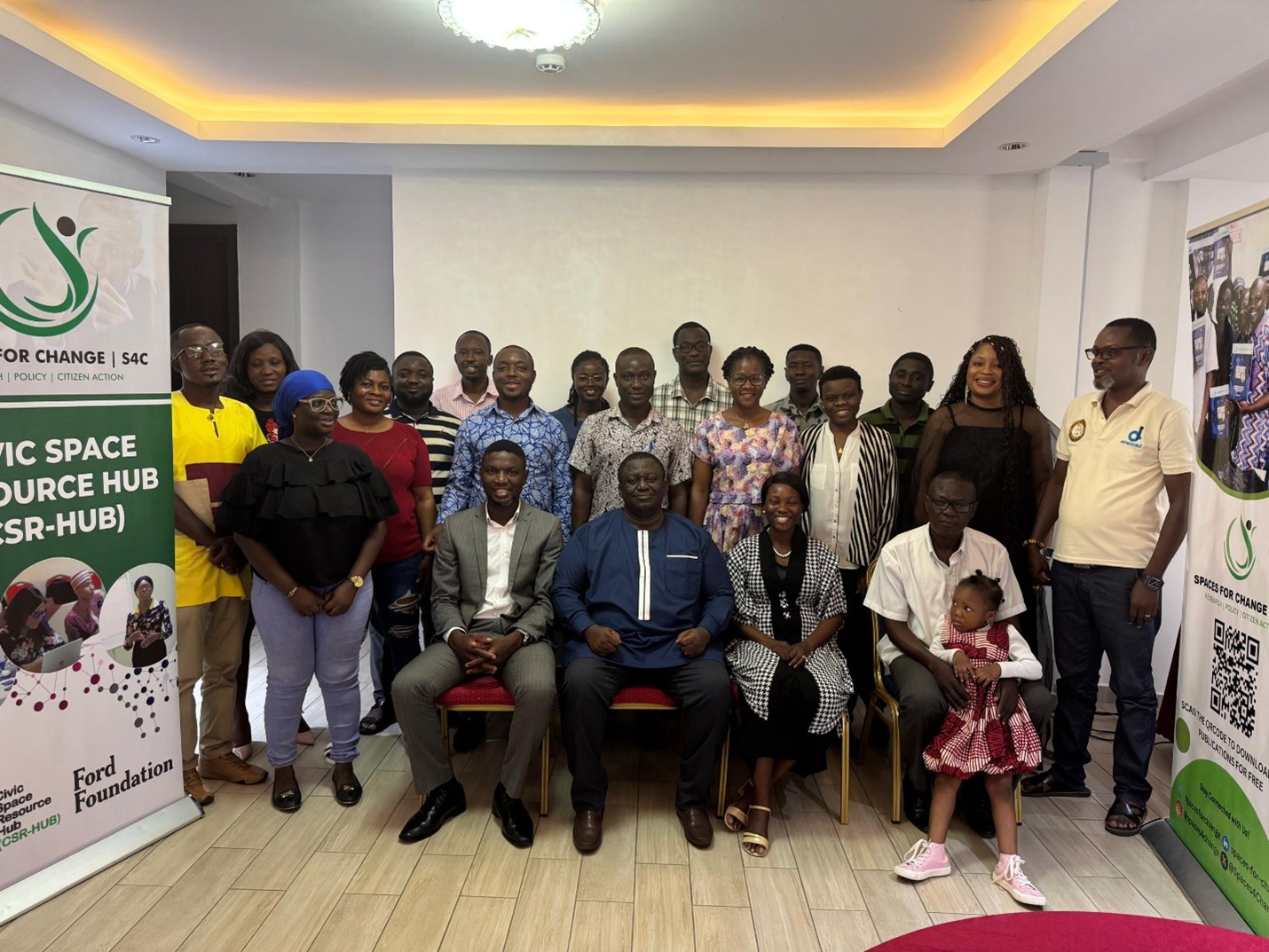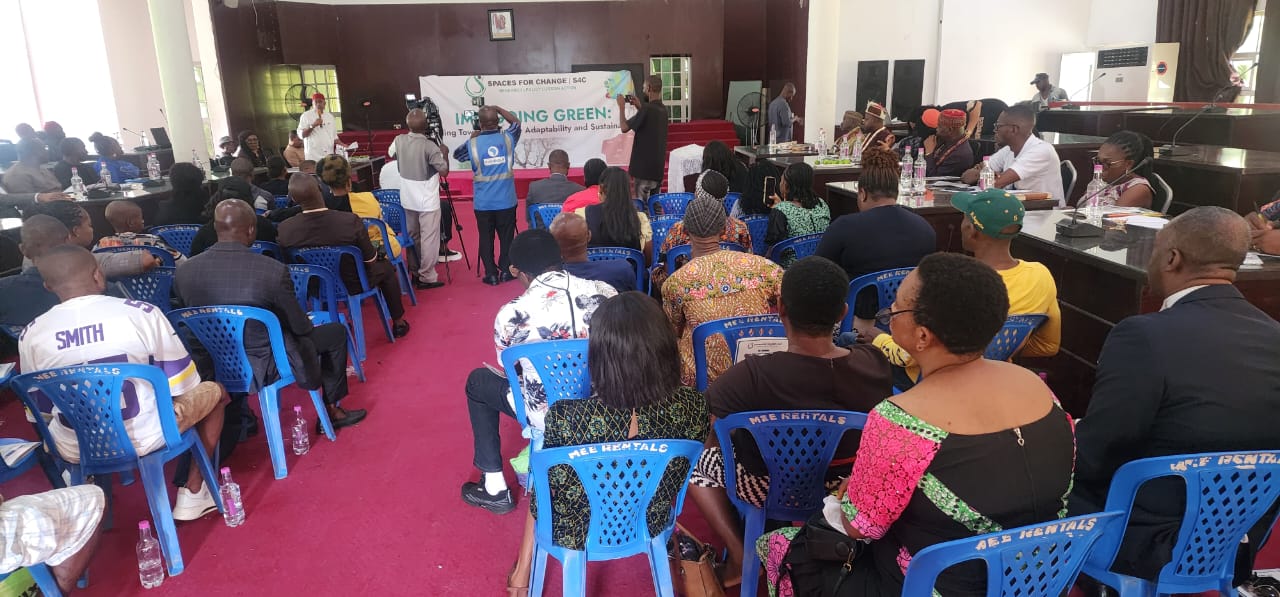 On April 17 -18 and April 29–30, 2025, Spaces for Change (S4C) hosted two-day NGO Regulatory Compliance Clinics (RCC) in Yola Adamawa State and Kumasi, Ghana, for non-governmental organizations (NGOs) operating in the north-east region of Nigeria and Ashanti region of Ghana respectively. Organized under the Civic Space Resource Hub (CSR-Hub) with support from the Ford Foundation, the Clinic brought together executive directors, compliance officers, program leads, and administrators of 29 and 18 NGOs respectively for a hands-on training on regulatory compliance, institutional resilience and countering terrorism financing risks in the non-profit sectors in both countries.
On April 17 -18 and April 29–30, 2025, Spaces for Change (S4C) hosted two-day NGO Regulatory Compliance Clinics (RCC) in Yola Adamawa State and Kumasi, Ghana, for non-governmental organizations (NGOs) operating in the north-east region of Nigeria and Ashanti region of Ghana respectively. Organized under the Civic Space Resource Hub (CSR-Hub) with support from the Ford Foundation, the Clinic brought together executive directors, compliance officers, program leads, and administrators of 29 and 18 NGOs respectively for a hands-on training on regulatory compliance, institutional resilience and countering terrorism financing risks in the non-profit sectors in both countries.
Infamously described as ‘ the place where the organisational health of nonprofit entities is evaluated and treated’, the Clinic began with an organisational health check of the participating organizations. The health checks uncovered several governance and operational gaps such as incomplete registrations, inactive boards, and weak internal controls. Facilitators comprising government and civil society shed light on corporate governance trends and practices around the world, followed by a comprehensive overview of the legal and regulatory frameworks applicable to NPOs in Nigeria and Ghana. Participants further explored how the regulatory environment is evolving in response to advances in technology, rising insecurity, and shifting geopolitical dynamics, and what these changes mean for nonprofit oversight.
Participants were introduced to the Financial Action Task Force (FATF) and its global standards for combating money laundering and terrorism financing, particularly Recommendation 8 (R8) which relates directly to nonprofit organisations. The FATF has rated Nigeria COMPLIANT with R8 while Ghana is currently rated non-compliant. Discussions revealed that nearly half of the participants had never heard of the FATF nor the national risk assessment process, which is now in its final stages in Ghana. The other half, though familiar with the FATF, struggled to connect its standards to their day-to-day non-profit operations.
This knowledge gap was particularly concerning given that NPOs in Ghana operate under a regulatory framework that classifies them as “obliged entities”, imposes broad compliance obligations based on assumptions that nonprofits—that since they receive large sums from international donors—are particularly vulnerable to terrorism financing abuse. This translates to increased scrutiny and administrative burdens, which can potentially disrupt daily charitable operations. Through case studies, typologies and evidence from other contexts, participants gained knowledge of how terrorist actors and organizations may seek to infiltrate or exploit nonprofits through seemingly legitimate partnerships or funding requests. Nigeria continues to face brutal terrorist attacks from the Boko Haram terrorist group. Although Ghana has not experienced a terrorist attack, its northern border with Burkina Faso, where extremist groups are active, poses a credible risk. It was against this backdrop that participants learned the various steps and techniques for fortifying their operations against abuse and exploitration by criminal elements, including terrorists and terrorist organizations.
The clinic also featured interactive presentations where experts and regulators walked participants through compliance requirements expected of NGOs operating in Nigeria and Ghana and the consequences for non-compliance. This was followed by robust discussions around unintended consequences of global anti-money laundering and counter-terrorism financing (AML/CFT) regulations affecting nonprofits, including bank derisking. By the close of the clinic, many organisations expressed appreciation for the timely insights and knowledge gained to strengthen their internal systems. Many committed to training colleagues when they return to their offices. The clinic not only bridged critical knowledge gaps but also advanced the case for a more enabling, risk-based approach to nonprofit regulation in Ghana—one grounded in transparency, trust and non-disruption.


